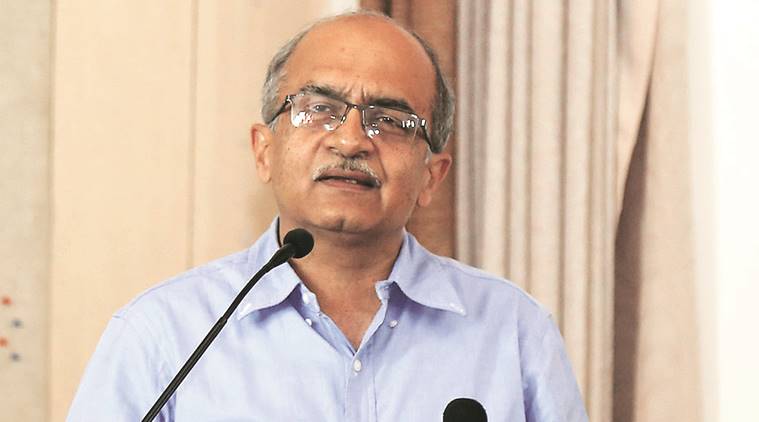 Advocate Prashant Bhushan. (File)
Advocate Prashant Bhushan. (File)
The Supreme Court Tuesday initiated suo motu contempt proceedings against advocate Prashant Bhushan for his allegedly derogatory tweets against the judiciary. The apex court has also made Twitter India a party in the case since Bhushan had posted the alleged derogatory comments on the platform.
A bench headed by Justice Arun Mishra will hear the matter on Wednesday, July 22.
Supreme Coirt ro hear suo motu contempt of court case against Advocate Prashant Bhushan tomorrow, July 22. Twitter India also made party. Bench headed by Justice Arun Mishra to hear @IndianExpress pic.twitter.com/cJmsTmJg8W
— Ananthakrishnan G (@axidentaljourno) July 21, 2020
In a tweet last month, Bhushan had accused the Supreme Court of playing a part in the “destruction of India’s democracy” in the last six years. “When historians in future look back at the last 6 years to see how democracy has been destroyed in India even without a formal Emergency, they will particularly mark the role of the Supreme Court in this destruction, & more particularly the role of the last 4 CJIs,” he had tweeted.
When historians in future look back at the last 6 years to see how democracy has been destroyed in India even without a formal Emergency, they will particularly mark the role of the Supreme Court in this destruction, & more particularly the role of the last 4 CJIs
— Prashant Bhushan (@pbhushan1) June 27, 2020
What is Contempt of Court?
According to the Contempt of Courts Act, 1971, contempt of court can either be civil contempt or criminal contempt. Civil contempt means wilful disobedience to any judgment, decree, direction, order, writ or other process of a court or wilful breach of an undertaking given to a court. On the other hand, criminal contempt means the publication (whether by words, spoken or written, or by signs, or by visible representations, or otherwise) of any matter or the doing of any other act whatsoever which
(i) scandalises or tends to scandalise, or lowers or tends to lower the authority of, any court; or
(ii) prejudices, or interferes or tends to interfere with, the due course of any judicial proceeding; or
(iii) interferes or tends to interfere with, or obstructs or tends to obstruct, the administration of justice in any other manner.
A contempt of court may be punished with simple imprisonment for a term which may extend to six months, or with fine which may extend to two thousand rupees, or with both, provided that the accused may be discharged or the punishment awarded may be remitted on apology being made to the satisfaction of the court.